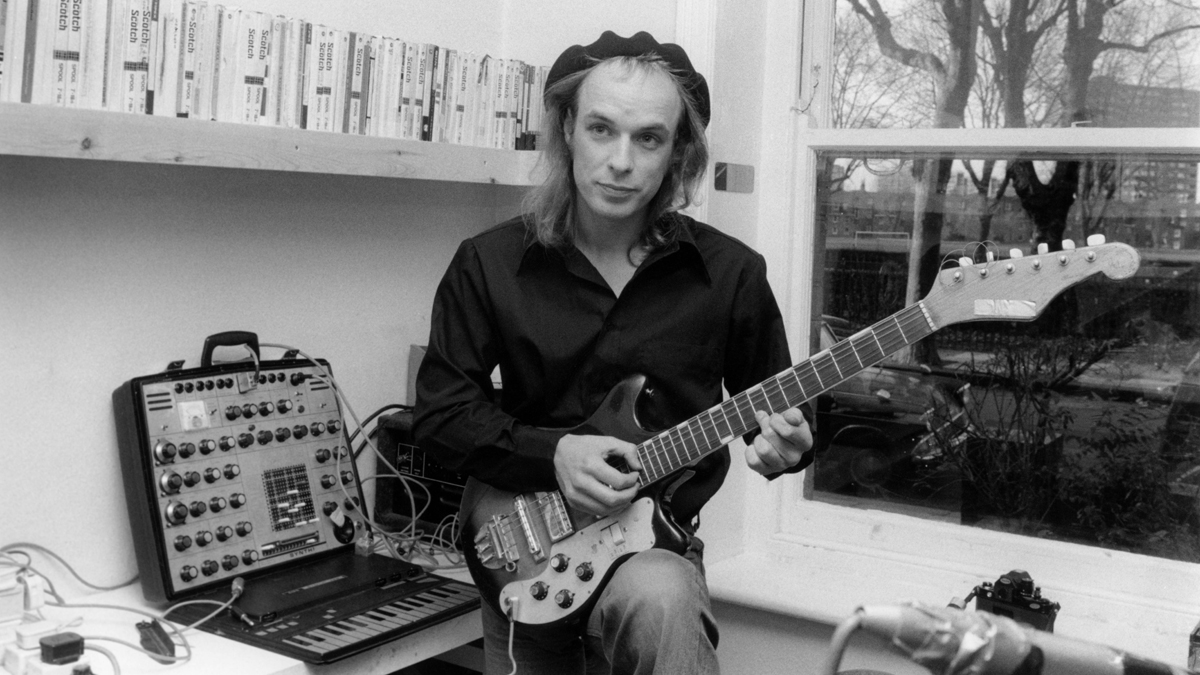Timeline 1974 - Brian Eno Begins Amazing Solo Career

By Dave Swanson - Summit FM Contributor
When Roxy Music hit the world in 1972, they were utterly unique. No band had ever looked or sounded quite like that before. They rode a rail between past and future, between Pop Art and Pop Music and Rock and Roll. Though they were indeed a band, with each member adding their own flavor to the mix, it was undeniably the concept of lead singer and main songwriter Bryan Ferry. It was, however, the other 'Brian' in the band that got a lion’s share of the publicity and attention, due not only his strange look, but to his strange sounds he contributed.
Though the band would survive and succeed beyond his tenure, the presence of Brian Eno within their ranks still means a lot to their story, even over 50 years on. Brain's retro futurism look, along with his synthesized treatments, tape loops, and general adornment of these first class 'pop' songs, added a dimension that had never been known. After the one two punch of their self-titled debut, and the equally stupendous 'For Your Pleasure,' Eno knew it was time for him to step out on his own. Even Eno couldn't have known the wide open spaces his solo career would take him as performer, innovator, pioneer and producer, but in 1974 he had bid farewell to Roxy and set his own sail.
What better way to start a solo career than with one of the most unique and, quite frankly, best albums of the rock and roll era. Released on February 8, 1974, 'Here Come The Warm Jets' is a shimmering slab of pop music presented in a previously unused set of colors. This was futuristic pop music that still sounds out of time. Casual elements of the Glam era shine alongside Art Rock infused sonic exploration, with a nod to the past and a kick into the future, while firmly planted in the present. Not, mind you, an easy task.
From the opening surge of 'Needle In The Camel's Eye' through the fading riff of the title track, it remains one of the most concise and perfect albums ever constructed. Jittery pop songs, with a bit of Syd Barrett-esque whimsy, can be found via 'The Paw Paw Negro's Blowtorch' as can the electric charge of 'Baby's On Fire,' a surging rocker with one of the most insane guitar solos ever recorded, courtesy of King Crimson's Robert Fripp. Elsewhere the breezy 'On Some Faraway Beach' gives way to the minimalist, proto punk of 'Blank Frank'. No two songs are cut from the same cloth, and yet all fit together seamlessly.
A song like ‘Cindy Tells Me’ is straight up, almost retro pop, with a vague wave to the simple songs on the charts in the 1950s, yet shot through with a space age glow of sorts. At the same time, ‘Driving Me Backwards’ is a very Avant-garde approach to a pop song.
It easily stands alongside albums like the Beatles' 'Revolver,' Beach Boys 'Pet Sounds' and the Who 'Sell Out' as examples of Pop Music as Pop Art, and as much of its time as it is out of time. Eno may have been and experimental explorer at heart, but he knew his way around a catchy pop song as well, which is why this all works so perfectly. He would issue a follow-up late in the year called 'Taking Tiger Mountain By Strategy,' which continued this adventure, but after that, all bets were off on where Eno would go next. One could argue Eno was creating ‘post punk’ music in a pre-punk world, which only goes to show how useless and cluttering it can be trying to put labels on music.
While albums like 'Before and After Science’ and ‘Another Green World’ would retain elements of this futuristic pop approach, other elements were added to change the ultimate trajectory of the music. At the same time, he had started to pursue an entirely different path to what would eventually become known as 'Ambient,’ with such albums as 'Discreet Music,' 'Music For Films,' and ‘Ambient 1: Music For Airports.'
Wherever many an artist would explore in the 80s and 90s, Eno, a true musical pioneer, had already been there whether by his own recordings, his collaborative works with the likes of David Bowie, Robert Fripp, and Harold Budd, or as producer of countless acts, notably Talking Heads, Devo, and U2. Though he would occasionally dip a toe in the more pop music waters, he never stepped back into the role he played in 1974, which, while kind of sad, just makes those two albums, especially 'Here Come The Warm Jets,' so special.






